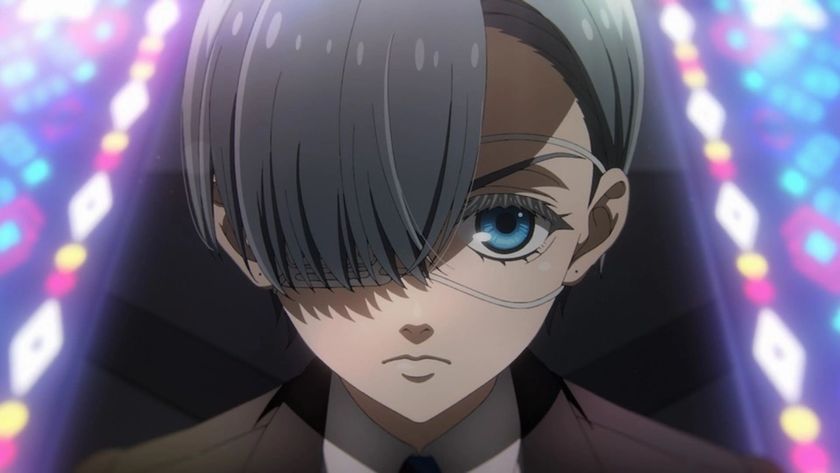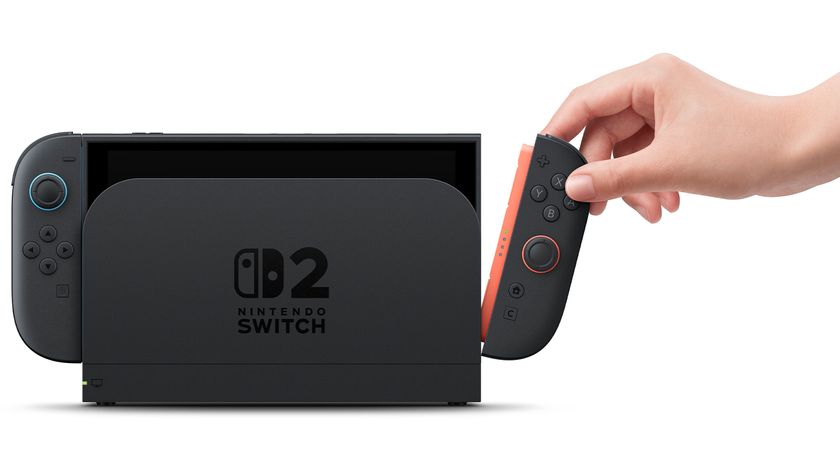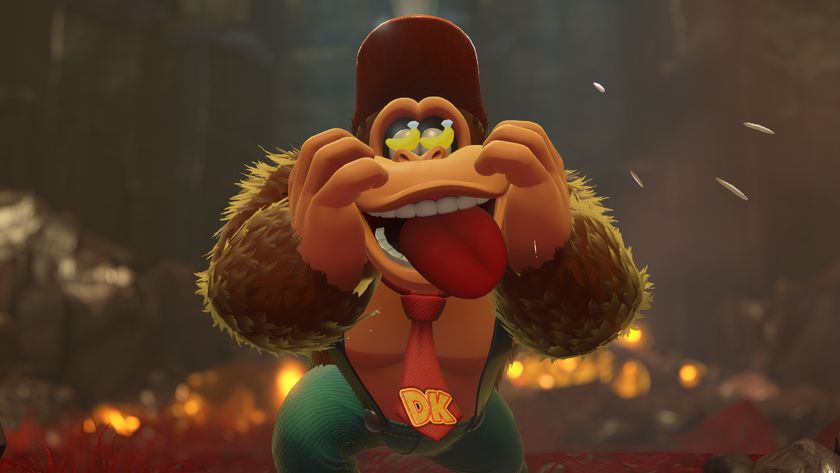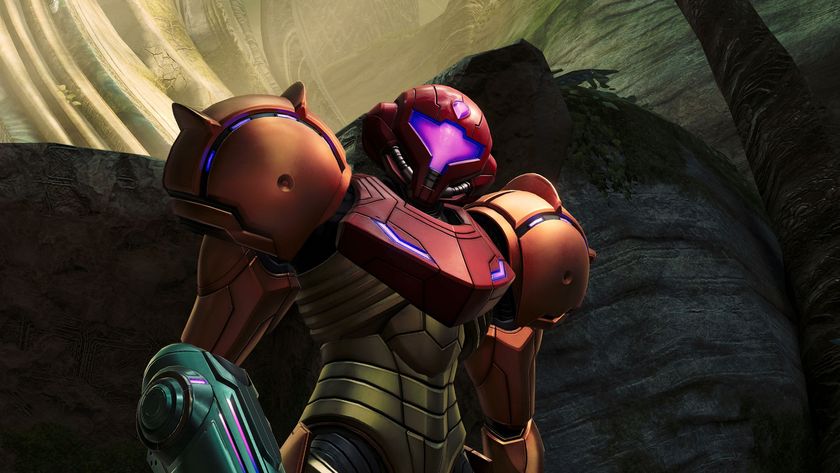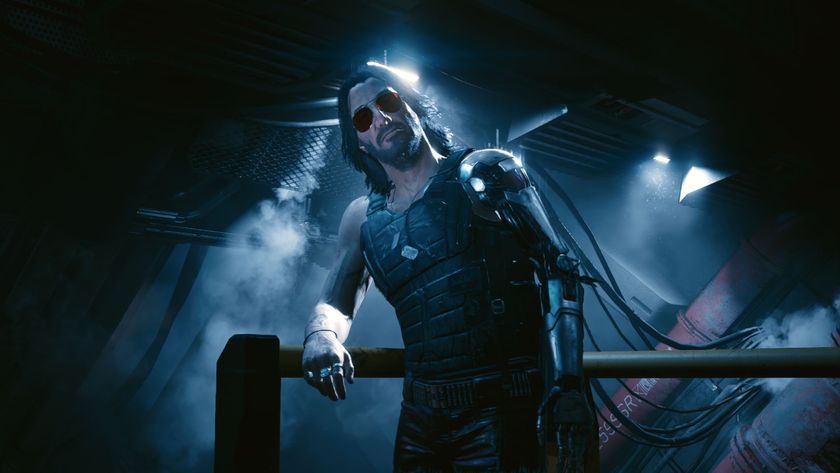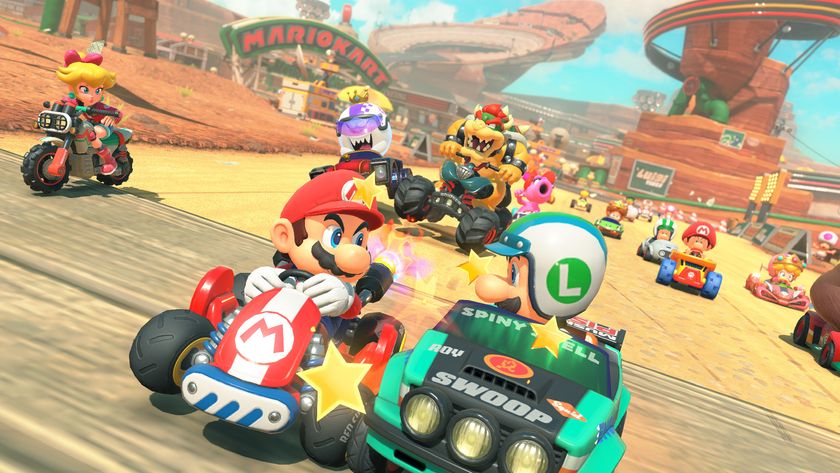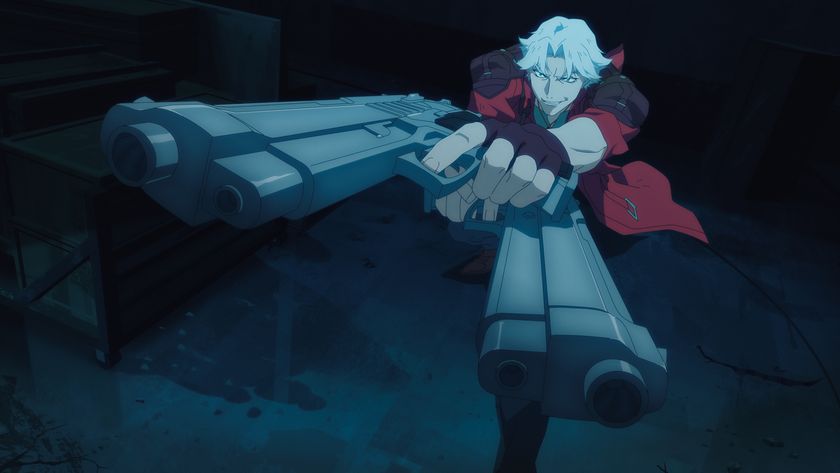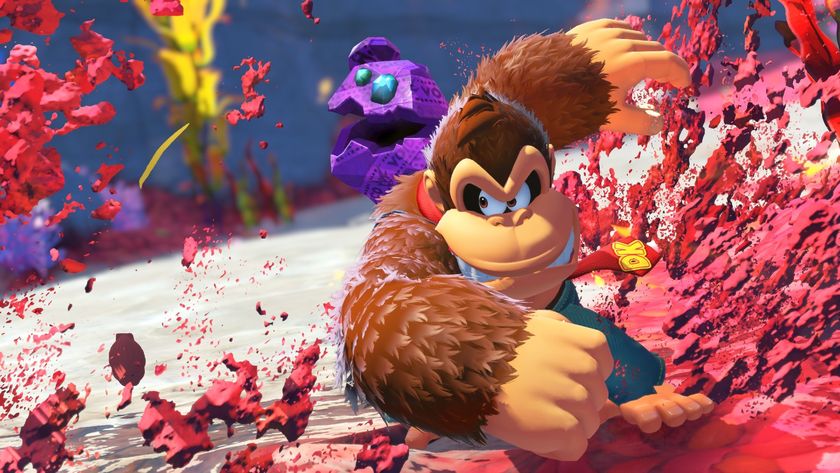Best & Worst: Computer Movies
Hi-tech hits and misses

Best: Tron (1982)
It's a bit rough around the edges now, and the costumes haven't exactly aged gracefully, but Tron will forever be remembered as a groundbreaking leap for CGI-augmented movies.
Jeff Bridges is Flynn, a software engineer who ends up being sucked into the mainframe of evil corporation ENCOM. He has to take on the Master Control Program via a series of challenges in the neon environment.
John Lasseter has referred to Tron as a huge influence which allowed many young animators to see the potential of computer animation. The long-awaited sequel, TRON: Legacy hits cinemas this weekend, and you can check out Total Film's review right here .
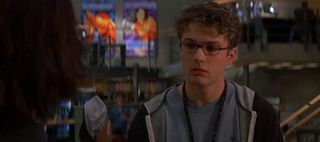
Worst: Antitrust (2001)
Ryan Phillipe starred in this dodgy computer thriller, which falls foul of so many of the pitfalls that computer movies often succumb to. Milo Hoffman (Phillipe) gets a too-good-to-be-true programming job for Gary Winston (Tim Robbins, doing a very thinly-veiled Bill Gates impression).
Phillipe and fellow programmer Rachael Leigh Cook can't convince as digital whizz kids, and despite throwing in a few generic thriller staples, Antitrust is never able to drum up a substantial amount of tension or a shred of believability.
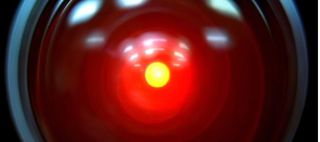
Best: 2001: A Space Odyssey (1968)
HAL is surely the most iconic movie computer ever. It's no accident that the artificially-intelligent ship's computer has more personality than the astronauts on board.
With Douglas Rain's understatedly sinister voice, and a single glowing red eye, things get a little scary for a 'U' when David (Keir Dullea) and Frank (Gary Lockwood) are unable to get away from the overbearing machine (who even manages to read their lips when they go for a secret conversation in a pod).
HAL only appears in the middle segment of the movie, between the bone technology of the apes and the next stage of evolution in the star-baby, but his impact is felt throughout (the poignant scene in which he's shut down is a lingerer).
And apparently it's just pure coincidence that HAL is an acronym just one letter shifted from IBM.
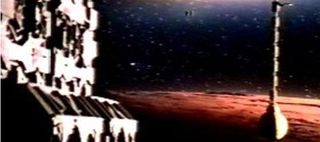
Worst: 2010 (1984)
Legendary sci-fi author Arthur C. Clarke penned the 2001 novel at the same time as Kubrick was making the movie (and the book served as a handy guide to some of the more obscure concepts in the fillm).
Clarke went on to pen three more novels in the series, and the second, 2010 , was also adapted into a movie. Competing US and Soviet teams mount rival missions to find out what happened to the Discovery spaceship after the mission to Jupiter in the first movie.
It's not an awful movie, but its simplistic take on the events fails to match the power of Kubrick's majestic masterpiece. This has none of the trademark power or the striking visual imagery of the far superior 2001 .
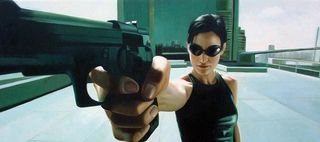
Best: The Matrix (1999)
The Matrix was the kind of cinema event that comes along all too rarely: groundbreaking and exciting, it arrived shrouded in mystery (unsurprisingly, Inception drew plenty of Matrix comparisons this summer).
Not only did the Wachowskis boost Keanu Reeves' career, and end up with the surprise sci-fi hit of the year (nobody would have believed that The Phantom Menace would be overshadowed by this), but they also came up with some extremely innovative action sequences.
The virtual reality setting certainly helped, as the relaxed physics, not to mention the trenchcoats and sunglasses, made the action jaw-droppingly cool.
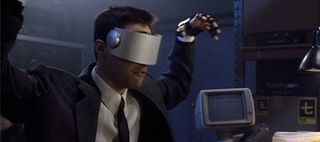
Worst: Johnny Mnemonic (1995)
Proof that putting Keanu into a neat sci-fi setting doesn't always result in cool results, making The Matrix even more of a pleasant surprise. It came with a decent pedigree: having been written by cyberpunk author William Gibson (who was adapting his own short story).
Keanu stars as Johnny, a data carrier who stores sensitive information in an implant in his noggin. He gets more than he bargained for when he takes on an overly-large piece of data: the size of the info will kill him if it's not delivered on time, and he ends up with a bunch of assassins (including Dolph Lundgren) on his tail.
Damning reviews saw this fail to recuperate its budget at the box office, and it sedated the careers of almost everyone is involved.
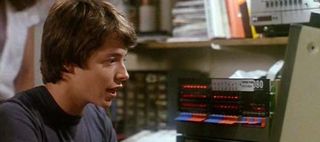
Best: WarGames (1983)
Before he was Ferris Bueller, Matthew Broderick starred in this hacking movie. He plays high-schooler David Lightman, a programming supremo who progresses from changing his grades on the school database to inadvertently playing a deadly game with a real-life military programme.
It's none-more-80s stuff, with Broderick also finding time to romance Ally Sheedy. Like most computer movies, it has dated over the last few decades, but it still manages to rack up a considerable amount of tension.
It concludes with the ultimately cheesy statement, when the supercomputer realises that "The only winning move is not to play." We can all learn a lesson from that.
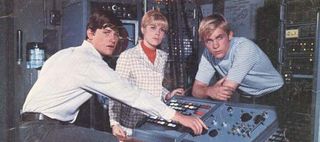
Worst: The Computer Wore Tennis Shoes (1969)
This one starred Kurt Russell, who was a contract-kid for Disney at the time. Dexter (Russell) goes to a college that can't afford its own computer (how old is this film?), so the students make do with a dodgy model donated by a local wiseguy (Cesar Romero).
Dexter ignores safety procedures by mucking around with the computer during a thunderstorm, and he ends up being zapped and taking on the computer's intelligence. He uses his ill-gotten knowledge to enter a TV quiz with a massive prize.
He also finds that the mobster's henchmen are after him when it's revealed that he's got all of the details of an illegal gambling ring stored in his head. Just about passes muster as summer holiday fare, but you'll never want to revisit this.
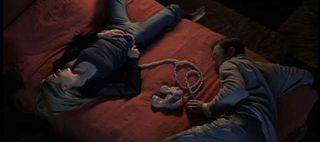
Best: eXistenZ (1999)
David Cronenberg turns his hand to virtual reality in this intriguing thriller. He manages to cram a little body horror into the mix, but this is still a change of pace for Canadian auteur.
Allegra Geller (Jennifer Jason Leigh) is the inventor of eXistenZ, an exciting new game that she tests out with a focus group. The participants enter an alternate reality, and soon find that they're struggling to remember what's real.
There's some extremely memorable design features in the gameworld, including an organic gun that's pieced together from the remains of some iffy-looking meat, and the freaky pods that let the users get involved are suitably icky.
Some claim its not as original as some of Cronenberg's output, but this is an underrated little thriller, defty handling some big ideas that'll keep you talking after the credits roll.
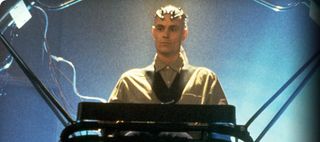
Worst: Lawnmower Man 2: Beyond Cyberspace (1996)
The first Lawnmower Man movie is far from revered in the computer movie pantheon. In a loose adaptation of a Steven King story, Pierce Brosnan played a scientist who bestowed superpowers on simpleton Jobe (Jeff Fahey in the first, Matt Frewer in the follow-up), who he involved in virtual reality games.
Part II makes the first one look like a minor classic. A developer turns to Jobe in an attempt to build an operating system that could dominate a computer-dependent society.
When Jobe uses the system to his own dastardly ends, a teenage hacker is called upon to help stop the ubermensch and restore his sanity. This even fails on the special effects front, which is the only way in which you could have expected it to be half-decent.

Best: The Terminator (1984)
The film that marked James Cameron as a directing talent to watch, and set Arnold Schwarzenegger on the path to becoming the world's biggest movie star.
The sequel is widely regarded as better (and it certainly is in terms of the groundbreaking effects), but the original is incomparably lean and tense. In the future, computer system Skynet becomes self-aware, and decides to wipe out humanity with an army of killing machines.
As the face of the massacre, Arnie cuts a mean figure, while the movie almost guarantees you'll end up eyeing your computer with suspicion, and deciding that perhaps you'll stick to good old pen and paper for the forseeable future.

Worst: I, Robot (2004)
Working from Isaac Asimov's superb Robot series, this one unforgivably squanders the potential for an awesome movie based on the Laws of Robotics.
Its biggest fault is turning a potentially serious and thought-provoking sci-fi topic into a generic Will Smith vehicle. Pandering to the Fresh Prince's fans, this makes wisecracks a priority, and the laws are interpreted to maximise the action potential, and limit the amount of brain-scratching.
Add Shia LaBeouf at his most irritating as a streetwise urchin, and a charisma-free Bridget Moynahan, and you've got one disappointing summer blockbuster.
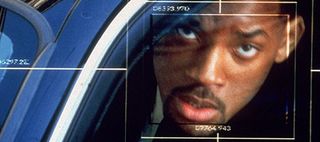
Best: Enemy of the State (1998)
Smith had better results with this Tony Scott surveillance actioner. Setting a tone of acute paranoia, Robert Clayton Dean (Smith) goes on the run after an old friend slips a suspicious cartridge into his pocket.
Scott knows how to keep things exciting, focusing on the ensuing chasing and camera-evading antics and never letting the pace slow down. Gene Hackman pops up as a former-agent who knows his stuff when it comes to this conspiracy malarkey.
Despite the 'technology' theme, this is old school stuff at heart, with Smith toning down his persona to convince as a put-upon everyguy.

Worst: The Net (1995)
Sandra Bullock was on the run from nefarious technological types in this indentity theft thriller.
Bullock's star was rising at this point, having recently hit big in Speed . This has none of the straightforward charm of that movie though, opting for convoluted plotted, and unconvincing conspiracies.
Once the Praetorians, a group of cyber-terrorists, get involved, you'll be feeling more frustrated and patronised than edge-of-your-seat engaged, and you'll be wishing you had chucked on Speed again instead.
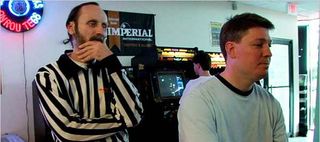
Best: The King of Kong (2007)
Not all great computer movies are fictional. Focusing on the niche realm of competitive vintage arcade gaming, this has no VR otherworlds ( a la Tron ) to grab your attention: it all comes down to the real-life drama.
The protagonist is Steve Wiebe, an extremely likeable Donkey Kong fanatic who sets his sights on breaking the world record score. Much of the movie's interest is generated via the rivalry between Wiebe and his mulleted arch enemy Billy Mitchell.
It's impressive quite how engaging The King of Kong manages to be, considering it primarily features men sitting at arcade machines in their garages, videotaping their high scores. Wonderful, surprisingly uplifting, stuff.
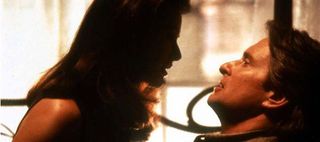
Worst: Diclosure (1994)
Michael Douglas starred in this based-on-a-Michael-Crichton-novel thriller. Tom Sanders (Douglas) gets into an awkward position at work when his ex Meredith (Demi Moore) joins the company and sexually harasses him (poor guy).
Things get unintentionally hilarious when Tom starts receiving emails from 'A Friend'. It turns out that, in addition to the lawsuit, Meredith's also planning to make Tom take the fall for a dodgy hard-drive that the company has been knocking out.
The pace slows to a crawl whenever Douglas gets behind a keyboard, though any of the stuff that happens away from the monitor is hardly scintillating.
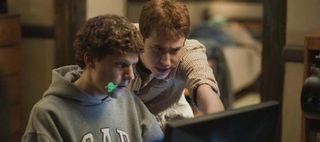
Best: The Social Network (2010)
David Fincher and Alan Sorkin defied expectations by turning the story of the founding of Facebook into an unmissable cinematic event. Jesse Eisenberg was riveting as Mark Zuckerberg, and Justin Timberlake also impressed as Napster founder Sean Parker.
The exponential expansion of the site keeps the plot moving at a rapid pace, and Fincher exploits the contemporary tale's multiple viewpoints by framing the action within two separate court cases.
Gives the finger to the movie rulebook that says people sitting at computers typing code can't make for compelling viewing.
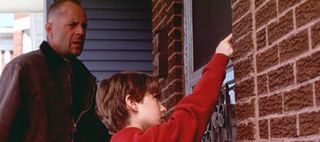
Worst: Mercury Rising (1998)
Post Sixth Sense , the producers must have thought that making Bruce Willis share the screen with a troubled kid was a recipe for success.
There's so little action here that it's hard to know if this is supposed to be a genre piece for Brucie, as the movie meanders through crushingly-boring scenes. The plot sees an FBI agent (Willis) assigned to look after autistic, code-cracking kid Simon (Miko Hughes) who has been targeted by assassins.
It doesn't help matters that Hughes is no Haley Joel Osment in the kiddie acting stakes, and the movie also features Alec Baldwin before he decided to become fun.
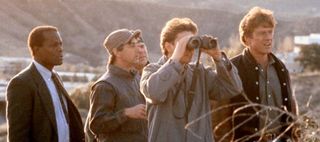
Best: Sneakers (1992)
A decent cast bring some gravitas to this thriller, which sees Robert Redford as the head of a mysterious security firm that deals in various code-cracking matters.
The team, which is made up of Dan Aykroyd, Sidney Poitier, River Phoenix and David Strathairn, use their various skills to hunt down a 'black box' for a couple of NSA agents. The box brings them many problems, as it seems it can break any code in the world, making it a superweapon.
Sneakers coasts along quite comfortably on the star power of its leads, relegating the technology to an almost macguffin-esque sideline, meaning it hasn't aged as much as some of its craggy stars.

Worst: Swordfish (2001)
Dominic Gone in Sixty Seconds Sena tried to sex up the hacking movie with this limp actioner. An astounding, explosive opening set piece isn't an accurate indicator of what's to come, with the only further excitement in the movie coming from a smattering of shirtless scenes from Hugh Jackman and Halle Berry.
Neither John Travolta or his haircut ever convince as the mysterious leader of a counter-terrorist group, leaving it up to an X-Men -boosted Jackman to bring the charisma.
Swordfish also features the single most ridiculous hacking scene in cinema history: Jackman's computer whizz has to prove himself by breaking into a government mainframe whilst a young lady fellates him. He succeeds, by the way.
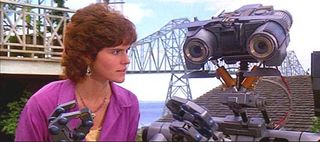
Best: Short Circuit (1986)
The movie that made Johnny Five a star. As is often the case with 80s computer movies, there is a Cold War theme here, as scientists Steve Guttenberg and Fisher Stevens create a bunch of robots, though they want to use them for good, rather than violent, ends.
Number 5 gets a power surge during a thunderstorm, and develops a personality. He's taken in by kindly Stephanie (Ally Sheedy), but as is also often the case in 80s computer movies, the military are keen to get their hands on him.
It was followed by a poor sequel in 1988, and there have been persistent rumours of a prequel or a reboot which have amounted to nothing solid. If it's warm nostalgic charm you're after though, you've got to go for the original.
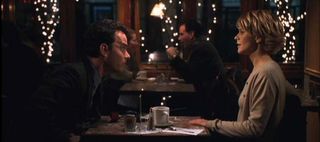
Worst: You've Got Mail (1998)
Obviously emails aren't as inherently romantic as letters, especially in our ever more advanced technological age, but on the evidence of this, they're even less romantic than meeting via a radio call-in.
The Sleepless in Seattle team of writer-director Nora Ephron and stars Tom Hanks and Meg Ryan joined forces again for this lighthearted romance. Hanks is Joe, a big businessman who threatens to put independent book shop owner Meg Ryan out of business.
'Ironically' the two rivals are unwittingly engaging in a cyber-relationship. It's a remake of the James Stewart movie The Shop Around The Corner , and it goes to show that the latest technology is never a substitute for charm.

I'm the Editor at Total Film magazine, overseeing the running of the mag, and generally obsessing over all things Nolan, Kubrick and Pixar. Over the past decade I've worked in various roles for TF online and in print, including at 12DOVE, and you can often hear me nattering on the Inside Total Film podcast. Bucket-list-ticking career highlights have included reporting from the set of Tenet and Avengers: Infinity War, as well as covering Comic-Con, TIFF and the Sundance Film Festival.
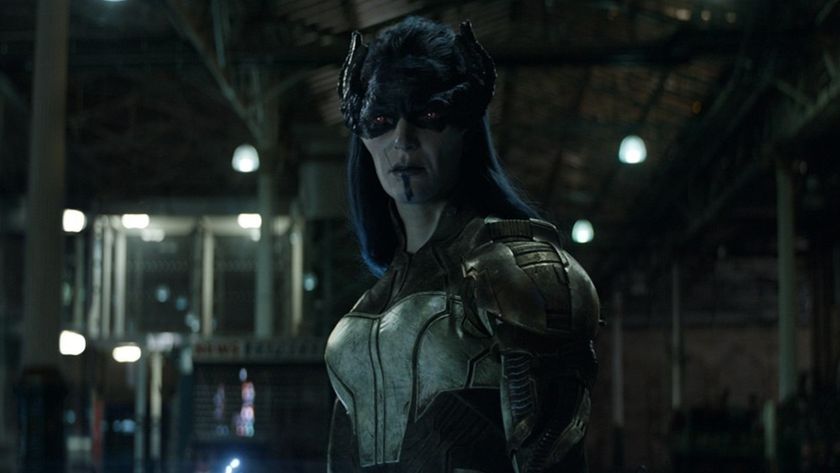
Avengers actor Carrie Coon didn't return for Endgame after a money dispute, and Marvel allegedly replied she should "feel fortunate" to be part of the MCU
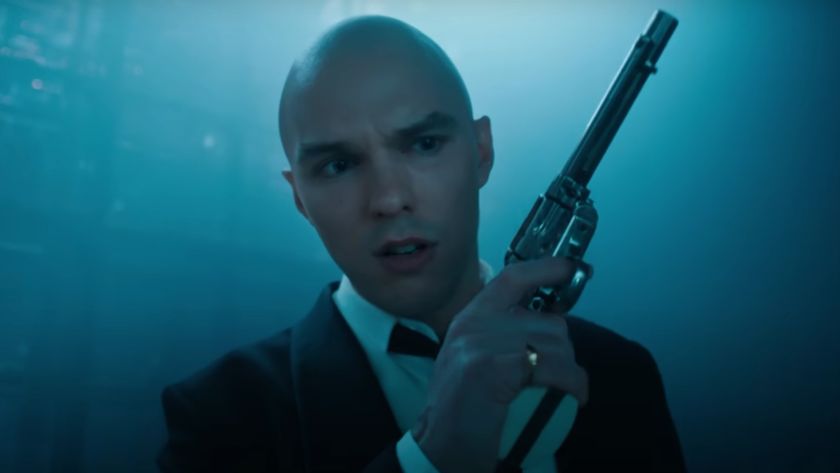
Superman star Nicholas Hoult reveals the "magic" moment when David Corenswet first flew onto set as the Man of Steel: "I felt like I was witnessing the magic of cinema"

Avengers actor Carrie Coon didn't return for Endgame after a money dispute, and Marvel allegedly replied she should "feel fortunate" to be part of the MCU

Superman star Nicholas Hoult reveals the "magic" moment when David Corenswet first flew onto set as the Man of Steel: "I felt like I was witnessing the magic of cinema"
